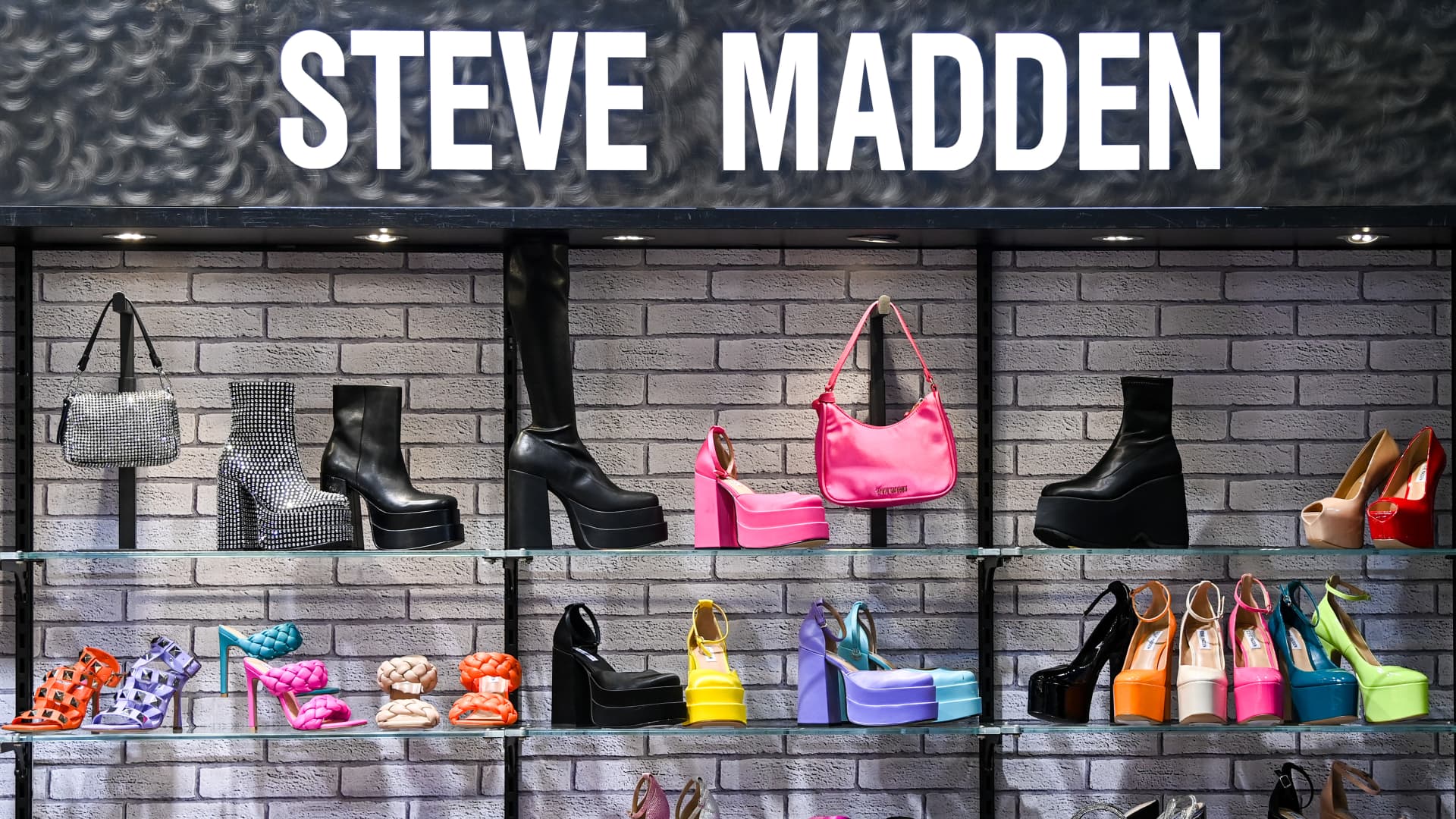The logo of the label Steve Madden at the fashion fair Premium.Â
ens Kalaene | Picture Alliance | Getty Images
Steve Madden said Thursday that it will slash the goods it imports from China by as much as 45% over the next year as it braces for President-elect Donald Trump to carry out his pledge for steep tariffs on imports from other countries.
On an earnings call, CEO Edward Rosenfeld said the shoe brand has been “planning for a potential scenario in which we would have to move goods out of China more quickly.” Over the past few years, he said, it’s looked for factories in other countries, including Cambodia, Vietnam, Mexico and Brazil.
“As of yesterday morning, we are putting that plan into motion,” he said Thursday. “And you should expect to see the percentage of goods that we sourced from China to begin to come down more rapidly going forward.”
Rosenfeld said about two-thirds of Steve Madden’s business are U.S. imports. Of that, he said, “we currently source a little bit more than 70% of those goods from China.” That means slightly less than half of its business would be at risk of tariffs on Chinese imports, he said.
“Our goal over the next year is to reduce that percentage of goods that we sourced from China by approximately 40% to 45%, which means that if we’re able to achieve that and we think we have the plan to do it, that a year from today, we would be looking at just over a quarter of our business that would be subject to potential tariffs on Chinese goods,” he said.
Trump is expected to put pressure on companies to move more of their production to the U.S. During his presidential campaign, Trump said he would impose a 10% to 20% tariff on all imports, including tariffs as high as 60% to 100% for goods from China.
Other retailers and brands have already made a push to diversify sourcing because of a variety of factors, including reduced labor in China because of its growing middle class and as part of an effort to bulletproof their supply chains after disruption from the Covid pandemic and Red Sea shipping crisis.
Retail analysts and trade groups have warned the proposed tariffs could drive up prices for U.S. consumers and soften spending.
Tarang Amin, CEO of makeup and skincare maker E.l.f. Beauty, said it may have to raise prices on some of its items if tariffs take effect. He said the company has moved more of its production outside of China since tariffs began under Trump’s first administration.
For Tapestry, the parent company of Coach and Kate Spade, less than 10% of overall sourcing comes from China, the company’s CFO Scott Roe said on a Thursday earnings call. He said the handbag-, apparel- and accessory-maker is watching tariff policy closely, but has gotten plenty of practice with staying nimble.
“My goodness, we’ve had so many disruptions and challenges that have forced us to make adaptions based on port strikes and freight lanes, whatever it might be, tariff regimes changing over time,” he said. “So we’re pretty well versed in managing through this.”
â CNBC’s Gabrielle Fonrouge contributed to this report.

